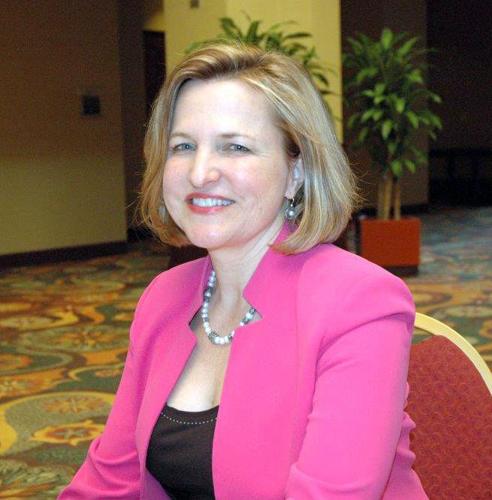The state’s relationship with Mexico, how it can improve and ways to move forward on shared economic growth are the main topics of discussion at the 108th Arizona Town Hall.
The four-day event, which starts Sunday, April 24, brings together about 150 Arizonans from various walks of life and across the political spectrum to learn about the issues and reach a consensus opinion to be published as part of a larger report.
Arizona and Mexico, especially Sonora, have a shared culture, a shared economy and shared interests, but that is often overshadowed by negative news coming out of the region, said Tara Jackson, president of Arizona Town Hall.
There are stories that paint Arizona as racist and not welcoming to Mexicans, she said, while others have Mexicans bringing in drugs and crime or taking over jobs. “As opposed to the stories that we are large trading partners, that the economy of Arizona benefits tremendously from Mexican tourists and exports to Mexico, about our shared manufacturing,” Jackson said.
Arizona exports to Mexico last year topped $9 billion, part of more than $16 billion in bilateral trade, and Mexican tourists annually spend about $2.5 billion in the state. Mexico’s economy is the 15th largest in the world and is projected to be the sixth largest by 2050.
These numbers and more are part of a report produced for the town hall that is required reading for participants.
“The goal of the report is to shed light on the different ways we are connected with Mexico. Everything is data based, it’s fact based. No one is pushing a particular perspective,” said Sapna Gupta, senior policy analyst at Arizona State University’s Morrison Institute for Public Policy.
The report also hopes to bring people’s knowledge about Mexico up to date, she said.
“People think of Mexico as still a developing country, and yes, there are states within Mexico that are less developed than others, but Mexico is a developed country. Its birth rate is the same as that of the U.S. and it’s still dropping,” Gupta said.
Mexico also produces a large number of engineers and is moving toward advanced manufacturing, which makes the region attractive not only nationally but for international companies, she said, giving them access to the U.S. market and to a less expensive Mexican workforce.
“Mexico’s growth is good for Arizona and Arizona’s growth is good for Mexico,” Gupta said. “The key thing is how do we maximize our economic relationship and how do we also get politicians, legislators and Arizonans to understand that.”
Starting a conversation
For more than 50 years, Arizona Town Hall has brought people together to solve difficult problems, said Jackson, who has led the nonprofit for the past decade.
“We put them through a process where our goal is to have them experience not only an education, from the materials we provide and from each other, but also experience what it’s like to solve problems in a way that diverse opinions are important and are used to find solutions,” she said.
Town hall participants include elected officials, students, working professionals and community leaders — people who usually have no problem expressing their opinions, Jackson said, so discussion is spirited but civil.
“We create an environment where you can disagree with someone’s policies or ideas but you cannot be disrespectful towards the person,” she said. “The way the questions are presented, it is not designed to have a debate where someone wins or loses.”
The best way to make social and political change is through conversation, Jackson said.
“Imagine if every Arizona community or our Legislature knew how to solve problems using this kind of method. It builds stronger communities, a stronger state,” she said.
Ideally, the consensus reached at the town hall on building the relationship between Mexico and Arizona will not only have an impact throughout the state, but also nationally, participants say.
SB 1070, passed in 2010 and considered one of the toughest immigration laws in the country, showed that Arizona can have an impact on the national conversation, although in that case not the most positive, Jackson said.
“What if Arizona as a border state with a long history of a shared culture with Mexico could formulate ways that show how to have a positive relationship?” she asked. “If we could come up with a template of how to maximize the opportunities of being a border state, the rest of the country could learn a lot from that.”







